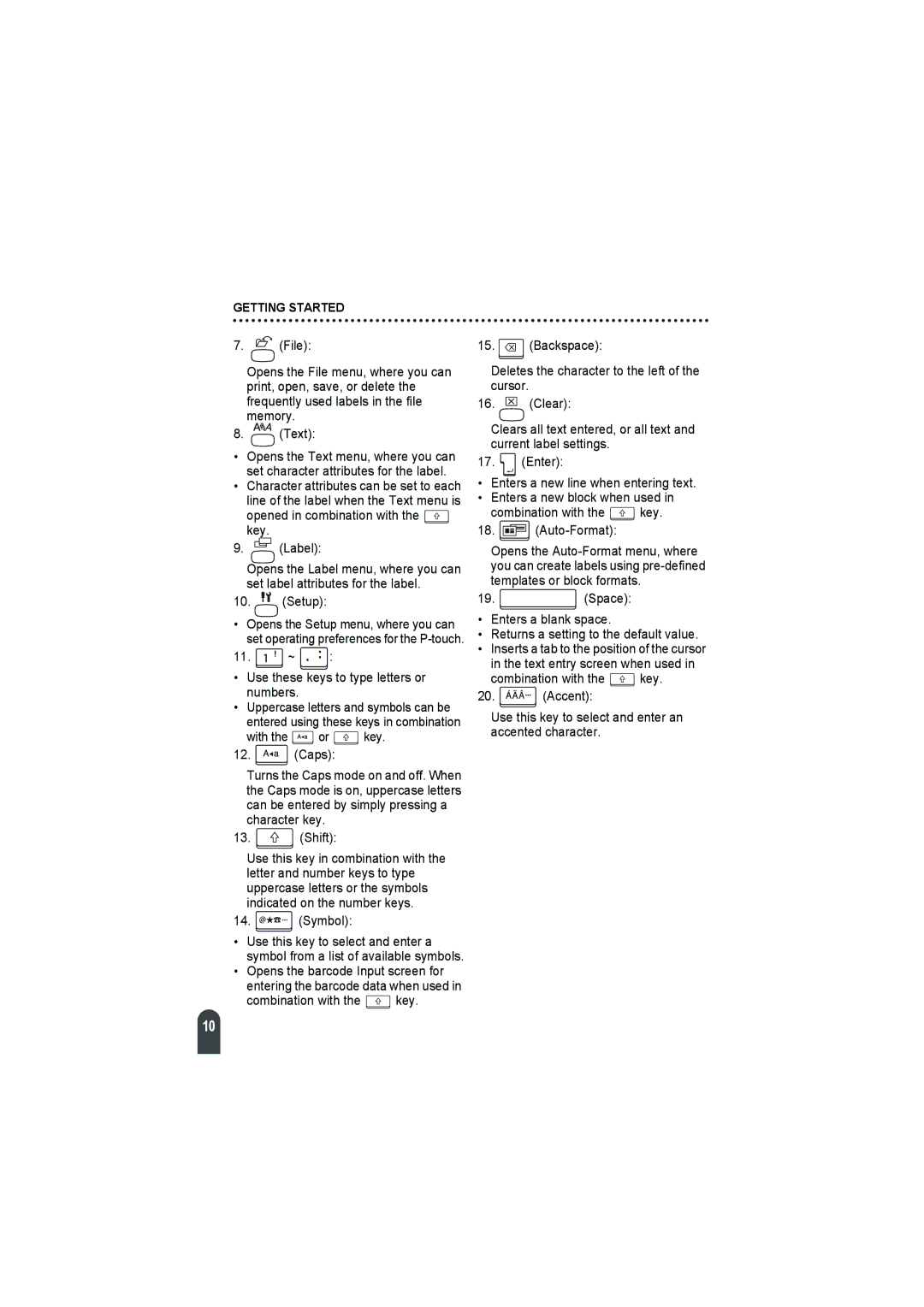
GETTING STARTED
7. ![]() (File):
(File):
Opens the File menu, where you can print, open, save, or delete the frequently used labels in the file memory.
8. ![]()
![]() (Text):
(Text):
•Opens the Text menu, where you can set character attributes for the label.
•Character attributes can be set to each line of the label when the Text menu is opened in combination with the ![]() key.
key.
9. ![]() (Label):
(Label):
Opens the Label menu, where you can set label attributes for the label.
10. ![]()
![]() (Setup):
(Setup):
•Opens the Setup menu, where you can set operating preferences for the
11.  ~
~  :
:
•Use these keys to type letters or numbers.
•Uppercase letters and symbols can be entered using these keys in combination
with the ![]() or
or ![]() key.
key.
12. ![]()
![]() (Caps):
(Caps):
Turns the Caps mode on and off. When the Caps mode is on, uppercase letters can be entered by simply pressing a character key.
13. ![]() (Shift):
(Shift):
Use this key in combination with the letter and number keys to type uppercase letters or the symbols indicated on the number keys.
14. ![]() (Symbol):
(Symbol):
•Use this key to select and enter a symbol from a list of available symbols.
•Opens the barcode Input screen for entering the barcode data when used in
combination with the ![]() key.
key.
10 |
15. ![]() (Backspace):
(Backspace):
Deletes the character to the left of the cursor.
16. ![]() (Clear):
(Clear):
Clears all text entered, or all text and current label settings.
17. (Enter):
•Enters a new line when entering text.
•Enters a new block when used in
combination with the ![]() key.
key.
18. ![]()
Opens the
19. ![]() (Space):
(Space):
• Enters a blank space.
• Returns a setting to the default value.
• Inserts a tab to the position of the cursor in the text entry screen when used in
combination with the | key. | |
20. | (Accent): |
|
Use this key to select and enter an accented character.
